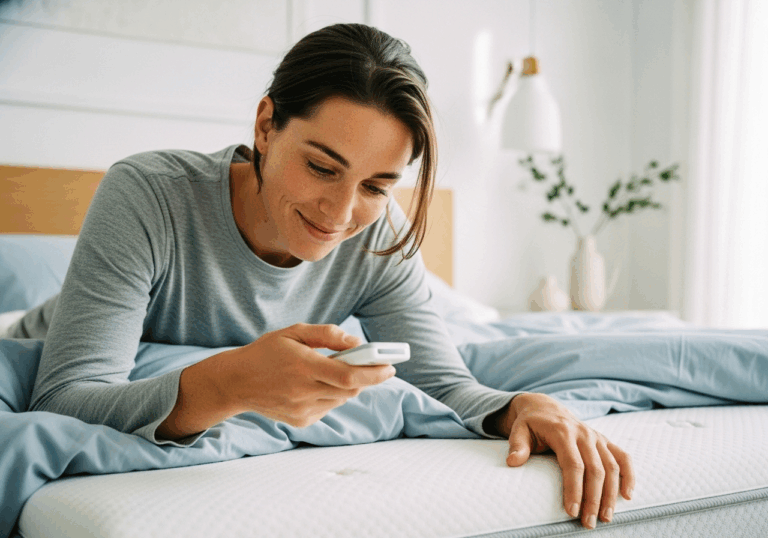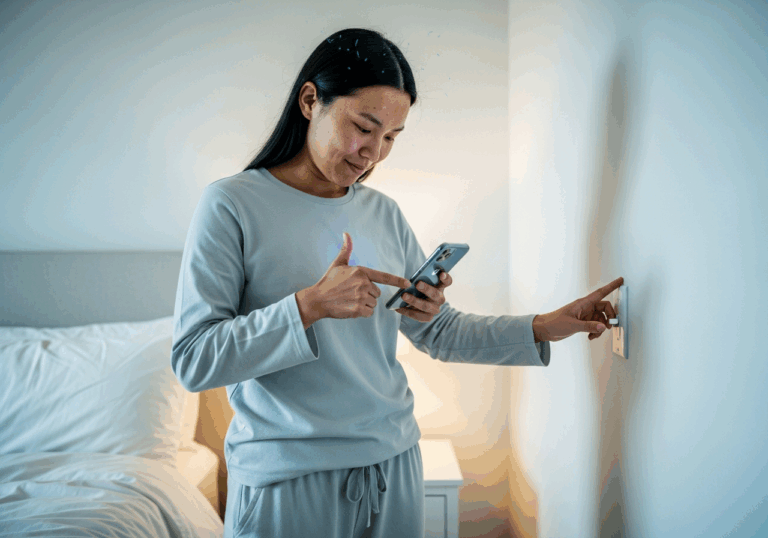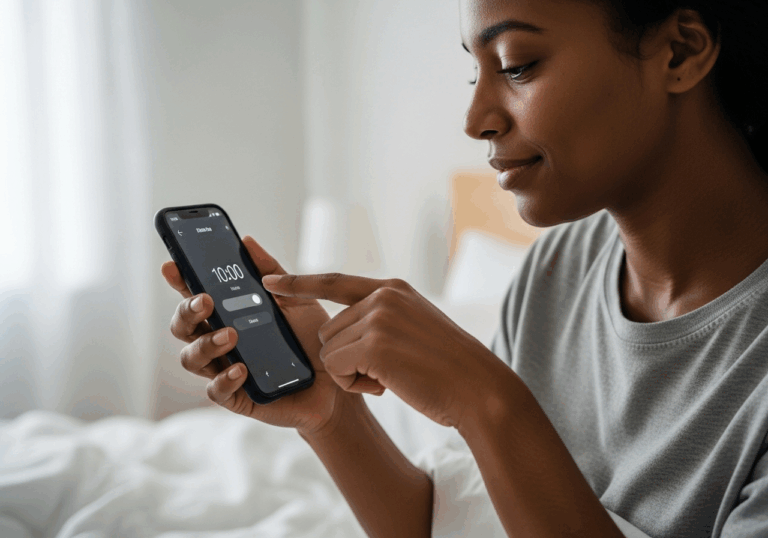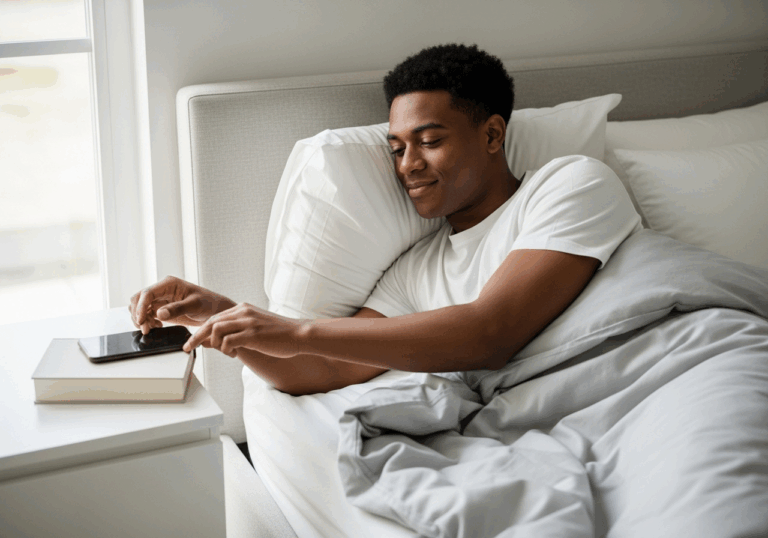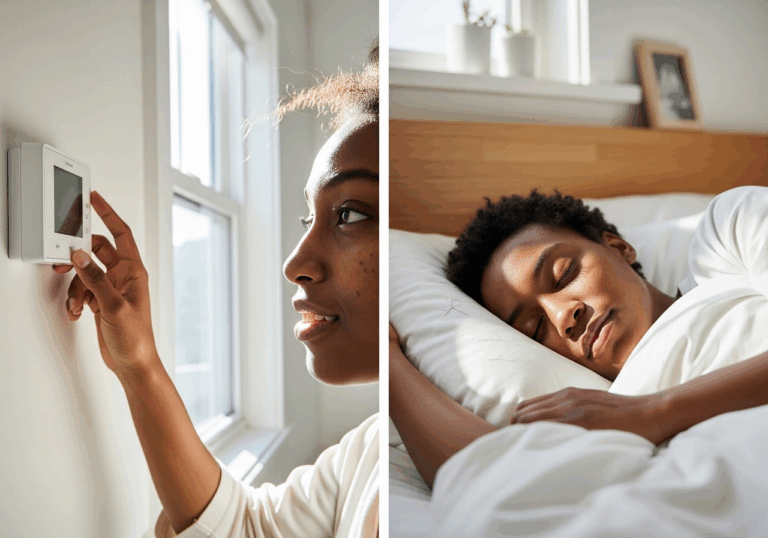Science-Backed Tips
Improve Your Mood by Limiting Screen Time in Bed
Avoiding screens in bed can lower fatigue by 26%.
📊 Did you know?
💡 Why It Matters
1️⃣
Reducing screen time in bed can lead to a significant improvement in mood and energy levels, enhancing overall quality of life.
2️⃣
Improved sleep hygiene can decrease the risk of chronic fatigue and associated health issues.
3️⃣
Better emotional stability can lead to improved productivity and social interactions.
✅ Try These Micro-Tips
🎯
Limit screen use in bed to no more than 1 night per week.
🎯
Establish a bedtime routine that includes reading a book instead of using a phone.
🎯
Set a specific time to turn off all screens at least 30 minutes before bedtime.
🎯
Create a tech-free zone in your bedroom to promote better sleep hygiene.
📚 The study
Embracing healthier bedtime habits can pave the way for a more energized and emotionally balanced existence, ultimately transforming how we feel and function each day.
❓ Frequently Asked Questions ❓
Learn more
How does screen use in bed affect mood?
Avoiding screen use in bed for more than two nights a week is associated with approximately 26% lower rates of poor mood. This reduction in screen time can promote emotional stability and improve overall well-being.
What is the impact of screen use on daytime fatigue?
Frequent screen use in bed is linked to significantly higher levels of daytime fatigue. Limiting screen time can help reduce this fatigue and enhance energy levels.
How can I improve my sleep hygiene?
Improving sleep hygiene can be achieved by limiting screen use in bed and establishing a bedtime routine. Activities like reading a book instead of using a phone can promote better sleep quality.
What are the benefits of reducing screen time before bed?
Reducing screen time before bed can lead to significant improvements in mood and energy levels. This, in turn, enhances overall quality of life and emotional stability.
How many nights should I avoid screens in bed?
It is recommended to limit screen use in bed to no more than one night per week. This practice can help maintain better mood and sleep continuity.
What should I do instead of using my phone at night?
Instead of using your phone at night, consider establishing a bedtime routine that includes activities like reading a book. This can help you unwind and prepare for sleep.
How long before bed should I turn off my screens?
It is advisable to turn off all screens at least 30 minutes before bedtime. This helps signal to your body that it’s time to wind down and prepare for sleep.
What is a tech-free zone in the bedroom?
A tech-free zone in the bedroom is an area where electronic devices are not allowed, promoting better sleep hygiene. Creating such a space can help reduce distractions and improve sleep quality.
Can limiting screen use improve productivity?
Yes, better emotional stability from limiting screen use can lead to improved productivity. When you feel more rested and less fatigued, you are likely to perform better in daily tasks.
What health issues can arise from poor sleep hygiene?
Poor sleep hygiene can increase the risk of chronic fatigue and associated health issues. By improving sleep habits, you can mitigate these risks and enhance your overall health.
